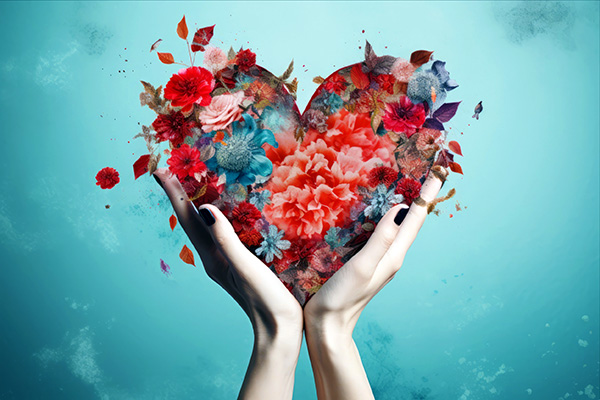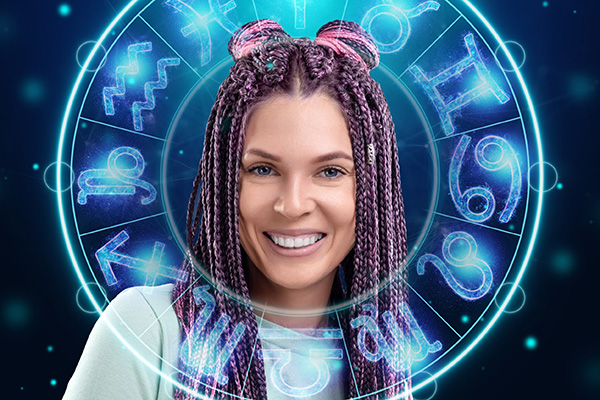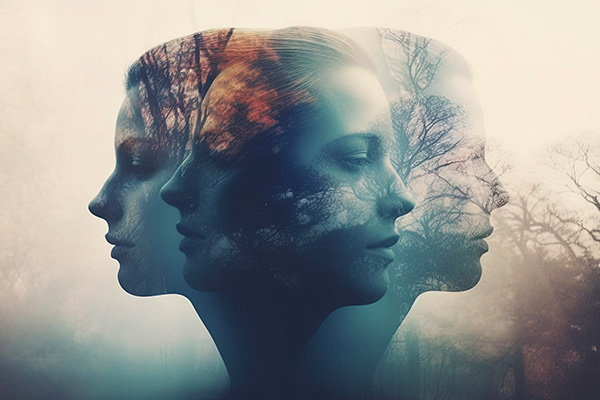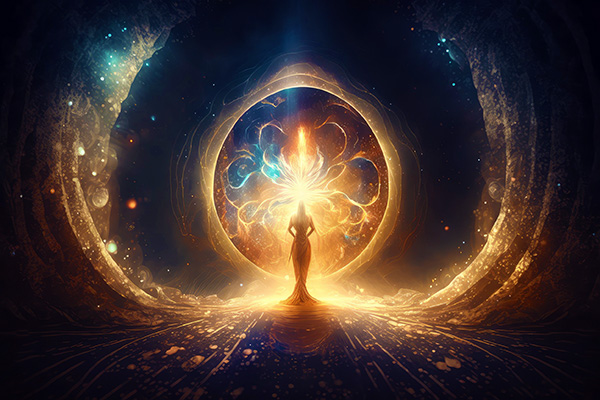self-awareness
The Ancient Wisdom Of The Two Wolves
 The story of the Two Wolves holds a special place among my childhood favorites. The moral of this Native American wisdom tale, thought to have originated with the Cherokee tribe, serves as a daily guiding light in my life.
The story of the Two Wolves holds a special place among my childhood favorites. The moral of this Native American wisdom tale, thought to have originated with the Cherokee tribe, serves as a daily guiding light in my life.
I must confess, there is some sentimental bias on my part, as this story also brings back lovely memories of my remarkable grandfather, Sequoia, a former medicine man and chief of the Cherokee Nation.
Variations of the story exist in various Native American cultures, and it typically goes like this:
One evening, an old Cherokee is teaching his granddaughter about life and says, “My daughter, a fight is going on inside all of us each day. It is the battle between the two wolves.”
“One wolf is evil — anger, envy, jealousy, sorrow, regret, greed, arrogance, self-pity, guilt, resentment, inferiority, lies, false pride, superiority, and ego. The other wolf is good — joy, peace, love, hope, serenity, humility, kindness, benevolence, empathy, generosity, truth, compassion, and faith.”
The granddaughter thinks about it for a minute and then asks her grandfather, “Which wolf will win?”
Embracing The Gift Of Empathic Insight
 Being attuned to the emotional energies of others is a beautiful gift that many spiritual individuals discover and enhance along their spiritual journey. This gift facilitates connection with others and provides insights into both others and ourselves.
Being attuned to the emotional energies of others is a beautiful gift that many spiritual individuals discover and enhance along their spiritual journey. This gift facilitates connection with others and provides insights into both others and ourselves.
While this empathic ability can bring profound understanding, it can also lead to anxiety. Feeling others’ emotions deeply may prompt self-reflection, causing concern about the impact of our actions on others and fear of judgment. Societal pressures become more intense, especially when expressing unconventional opinions, making those on a spiritual path feel isolated or misunderstood during a spiritual awakening.
How can we balance this empathic insight with personal expression and development?
Navigating meaningful relationships becomes challenging as our perspectives expand. Striking this balance requires self-reflection and working towards a more whole and heart-centered way of living.
Maintaining an open mind while expressing our own understandings is like a tightrope walk. We don’t want to become closed-minded, yet we need to articulate our perspectives and advocate for what we believe is right. A spiritual life is a journey of constant growth and understanding. Plateaus and challenges are part of the path, requiring breakthroughs to overcome.
Navigating Relationship Conflict With Astrology Humor
 Navigating a lover’s quarrel can range from simple and fleeting disagreements to complex and time-consuming arguments and feuds.
Navigating a lover’s quarrel can range from simple and fleeting disagreements to complex and time-consuming arguments and feuds.
In the midst of such challenges, a sense of humor can sometimes be a good thing, providing a quick relief valve and a broader perspective on the situation. A little humor can even prevent us from saying or doing things we later regret!
A great source of humor is our zodiac sign. Understanding how our partner’s sign and our own might handle relationship conflict differently can actually help one see the funny, lighter side of even a serious disagreement.
Throughout my years as a psychic reader, I’ve certainly noticed the humor in how different clients handle arguments with their partners based on their signs.
Different zodiac signs have different communication styles. Knowing your partner’s style and your own can help you appreciate the differences and find humor in miscommunication. Each sign also has its flaws, and recognizing them can help you approach conflict with a greater sense of humor. Instead of seeing flaws as insurmountable problems, see them as opportunities for growth and laughter.
Breaking The Pattern Of Relationship Trauma
 Today I did two consecutive readings for clients who are obsessed with a relationship from a long time ago. They both wondered why the relationship ended and what could have been if things had gone differently.
Today I did two consecutive readings for clients who are obsessed with a relationship from a long time ago. They both wondered why the relationship ended and what could have been if things had gone differently.
In retrospect, there have been many similar calls recently. I have even had clients who have had vivid dreams and nightmares about a particular ex-love, lost friend or estranged family member.
In all cases, I find that Spirit consistently offers the same guidance. These haunted thoughts and obsessions are due to a lack of closure and unresolved trauma. Spirit has also indicated that there is a growing epidemic of loneliness in the world. Because of this, more and more people are dwelling on old relationships and their regrets.
This has even happened to me recently, with people from my past that I have not thought of or seen in years coming to mind more and more. It can be surprising and disconcerting to have such random memories pop up. Spirit gave me exactly the same wake-up call. These memories are a sign that there is a need for forgiveness and healing. It is essentially a form of delayed grief, when instead we should be having happy and fond memories of the people in our past.
I find it helps to remember that they, like me, were just doing the best they could with what they knew and had at the time. When someone has shown signs of unkindness or aggression, I have also come to realize that it was the result of their own hurts, losses, or disappointments.
Unstuck Your Life With A New Spiritual Practice
 One of the most transformative things we can do in life is to step out of our comfort zones and infuse our lives with new vitality. As creatures of habit, we tend to get stuck in life with repetitive routines and recurring patterns that drain our energy and stifle our personal and spiritual growth.
One of the most transformative things we can do in life is to step out of our comfort zones and infuse our lives with new vitality. As creatures of habit, we tend to get stuck in life with repetitive routines and recurring patterns that drain our energy and stifle our personal and spiritual growth.
When conventional methods fall short, exploring spiritual or esoteric practices can breathe fresh air into our lives and help us break free from the shackles of monotony.
Feeling stagnant, experiencing a lack of fulfillment, or longing for personal growth are all signs that it’s time to break free from a comfort zone, a soulless daily routine, or a recurring toxic pattern that no longer serves our highest good. These indicators often signal the need for change to invigorate or even reinvent our lives.
By adopting a new spiritual practice and delving into realms beyond the ordinary, we embark on a new journey of self-discovery and soul expansion that unlocks our hidden potential and transforms our destiny. Exploring esoteric and occult traditions offers alternative perspectives and transformative experiences that can expand our consciousness and provide profound insights. It can uncover hidden knowledge and help us tap into higher realms of consciousness that enrich our lives.
The Inner Truth Of External Clutter
 We are almost a month into the new year, the time when most people begin to flounder in their resolutions. For me, resolutions are like empty promises, so my only resolution every New Year is to not make any resolutions.
We are almost a month into the new year, the time when most people begin to flounder in their resolutions. For me, resolutions are like empty promises, so my only resolution every New Year is to not make any resolutions.
Instead, I try to simply live my life with a few consistent rules. I have found that staying true to these personal and lifestyle guidelines eliminates the need for major resolutions each New Year.
Clutter is a big one for me. I make it a point to clean out the clutter in my life on a regular basis, whether it is physical, material, emotional, or spiritual.
Material clutter is the easiest to deal with because it is tangible and visible. It is hard to ignore a pair of shoes that you never wear anymore and have to move around in your closet over and over again.
It is also hard to ignore all those old clothes from another era that you have held on to in the hope that one day they will come back in style. Equally difficult to deal with are those old spice jars and other pantry items past their expiration date that you should have thrown away years ago!
These small lifestyle annoyances may seem insignificant on the surface until you consider that material clutter goes hand in hand with mental, emotional and spiritual clutter. The way we live, the way we manage our environment, and the way we organize our outer existence are a reflection of our inner being. The resulting clutter then becomes a recurring pattern that leads to more clutter, chaos, and dysfunction in our lives.
Honoring Your Soul Contract
 Each of us came into our current life for a reason that is relevant to our soul evolution. Regardless of how, where and when we arrived, we all came into this physical existence with a planned mission known as our soul contract, or pre-birth soul plan.
Each of us came into our current life for a reason that is relevant to our soul evolution. Regardless of how, where and when we arrived, we all came into this physical existence with a planned mission known as our soul contract, or pre-birth soul plan.
Before entering this life, our souls deliberately choose certain experiences and lessons to learn and contributions to make for the purpose of our own spiritual evolution. It’s essentially our cosmic to-do list!
We come for a variety of reasons: some to learn, some to teach, some to grow, some to heal. Some come to observe, others to participate. Some come to navigate a profound dark night of the soul. Some even come to influence the masses or change the world forever.
Whatever the nature of your soul contract, you can be absolutely certain that there is a divine purpose to it all. Never forget that your soul mission is your own doing. We owe our existence and our journey to no one. It is ours alone to experience and ours alone to complete.
One of the most empowering things we can do in this lifetime is to uncover the nature of our soul contract to ensure our ultimate success. We must reflect on our true purpose and the meaningful connections and experiences we encounter.